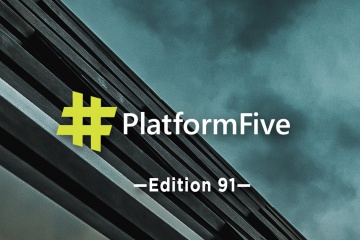Platform 5: This week’s most important social media changes (edition 91)

This week’s 5 most important social media changes
Facebook ventures into e-learning
Facebook marketing expert, Mari Smith, reported the addition of ‘Units’ in Facebook groups. Meaning that we may soon be able to add teaching modules / lessons to groups. Mari reports that students (group members) will see a progress bar as they work their way through units and receive a ‘reward’ when they complete a unit.
Read Mari’s Facebook post here.
Changes to Facebook albums
Your Facebook album will soon be a lot more than a collection of your favourite photographs. You’ll soon be able to add videos, check-ins and posts to albums and follow specific albums belonging to your friends so that you’re notified when they’re added to.
TechCrunch is also reporting that Facebook looks set to simplify the ability to add contributors to a collaborative album. It looks like albums are set to become their own events. Just like Facebook’s new Facebook Live features, these additions will keep us interacting with each other on Facebook more often and for longer.
Read more about Facebook’s changes to albums here.
Skype adopts Snapchat-like features
Skype announced a major redesign that will see the addition of a number of features including ‘Highlights’ – a feature that lets you take photos and videos that will be temporarily available to your connections. Sound familiar? This will be Skype’s most significant update since Microsoft’s acquisition of the platform in 2011. You’ll also be able to share photos during a call, send stickers and emojis, and have Microsoft’s bots fetch news for you while you talk.
Read the Sydney Morning Herald’s report on Skype’s redesign here.
Google Chrome to automatically block annoying ads
Google Chrome will soon come with a filter that blocks ads that consumers dislike. This is Google’s attempt at making the ad experience a little less annoying for users while not punishing all advertisers…just those that make annoying ads. Improving the ad experience is one way Google is hoping to slow the spread of ad-blocking software. Google expects to role out the feature in early 2018.
Read the AdvertisingAge’s report on Google’s new ad filter here.
Twitter’s new DM filter
Twitter is adding a filter to its Direct Messages (DM) service in an attempt to encourage more users to use it. The filter sends DMs from people you don’t follow to a new ‘requests’ folder until you decide what to do with them. This means your inbox should only contain messages from people you know.
Read Digital Trends’ report on Twitter’s new filter here.
Follow us on Twitter for news of these social media and content marketing changes as they happen.